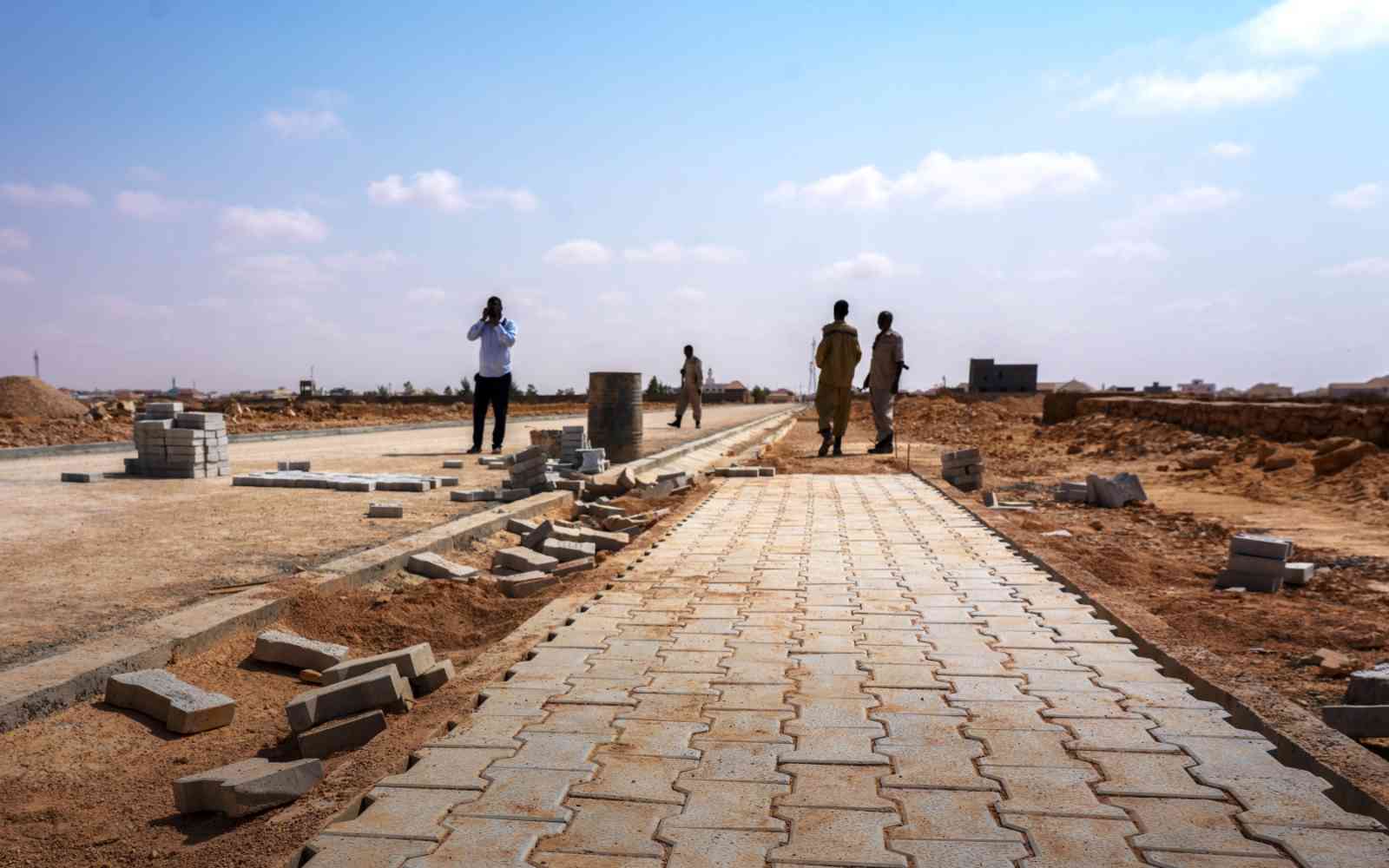The United Nations Office for Project Services (UNOPS)

The Impact of Sustainable Procurement
Behind every piece of equipment or service procured by UNOPS on behalf of our partners, are careful considerations about how these can positively impact the people and communities we serve – both now and in the future. Here are just a few examples.
Jordan
Jordan
In cooperation with the Government of Jordan and with funding from the Government of Japan, UNOPS implemented a project aimed at promoting inclusive, sustainable economic growth and social stability in Jordan.
With the goal of enhancing job opportunities, UNOPS improved the capacity of the Government’s Vocational Training Corporation (VTC) by expanding a vocational training centre in Aqaba. The equipment and furniture for the centre were procured by local vendors.
This project not only provided local vocational students from different fields – including carpentry, welding, aluminium working and mechanics – with skills and better job prospects in the future – it also contributed to better sustainability.”
Environmental factors were considered from the outset of the project, including the requirement for an environmental management system incorporated into contractors’ contracts.
“This helped raise awareness of the importance of environmental management in the workplace,” explained Taleb. “We saw the positive result of this with the way waste was managed, which included recycling construction material waste.”
UNOPS also procured and installed a photovoltaic system as part of the project, which has helped generate energy for the new building using solar power.
Somalia and South Sudan
Somalia and South Sudan
UNOPS contracted the services of a female kennel master who manages the daily operations of 26 explosive detection dog teams in Somalia.
In the field of mine action and explosive hazard management, explosive detection dog (EDD) teams save lives by correctly identifying explosives and explosive substances. UNOPS contracts these teams to support the work of United Nations Mine Action Service in several countries in Africa.
As mine action is a particularly male-dominated field, UNOPS ensures supplier diversity and an inclusive process for procuring the services of explosive hazards experts by incorporating gender and diversity requirements into its Request for Proposals. Contractors offering their services are required to demonstrate how their projects take gender and diversity into account during all phases of the project.
This provides suppliers with an opportunity to contribute to the empowerment of women while simultaneously expanding their global markets.”
Using this approach, UNOPS contracted the services of a female kennel master who manages the daily operations of 26 EDD teams in Somalia, as well as a female EDD Quality Assurance Officer who monitors the operational capacity 32 EDD teams in South Sudan.
Kosovo* and Serbia
Kosovo* and Serbia
To support authorities in Kosovo* and Serbia, UNOPS is implementing the construction of several common crossing points. Funded by the European Union, the crossing points will help boost security, trade and regional cooperation.
UNOPS is responsible for all construction, procurement and financial management activities.
As part of this project, UNOPS set up three different on-site storage areas for segregated waste, before it is sent for recycling. Steel waste is sold by the construction contractor to a local recycling company, wood waste is used for other projects or sold for firewood locally, and general waste is collected by a local recycling company.
In addition, waste from concrete mixers is used for backfilling in construction works. Separate bins for hazardous construction material waste are also provided, with local companies collecting it and disposing of it at approved landfills.
- *All references to Kosovo are made in the context of UNSCR 1244.
“The better the environment, the better the quality of life for the people we serve, and for the future of our planet,” said Lindita Preniqi-Shaipi, UNOPS Procurement and Contracts Associate.
Central African Republic
Central African Republic
Since 2014, UNOPS has been supporting the work of United Nations Mine Action Service in the Central African Republic.
To support the protection of civilians, security sector reform, as well as disarmament, demobilization and reintegration, UNOPS contracted a supplier to destroy and dispose of explosive hazards.
The supplier was encouraged to take sustainability and resource-efficiency into account. Environmental protection was also factored into all destruction and disposal activities.
They ensured that the land where destruction activities took place was left suitable for its intended use.”
Soil surveys were carried out to ensure the land was neither cultivated nor used by cattle. When feasible, destruction activities were conducted in a dedicated zone to reduce the area of temporary contamination and waste from destruction activities was collected and temporarily stored to minimize spills or leakage.
Now the land is safe for people to conduct their daily activities, and the disposal measures prevent explosive materials from being exploited.













